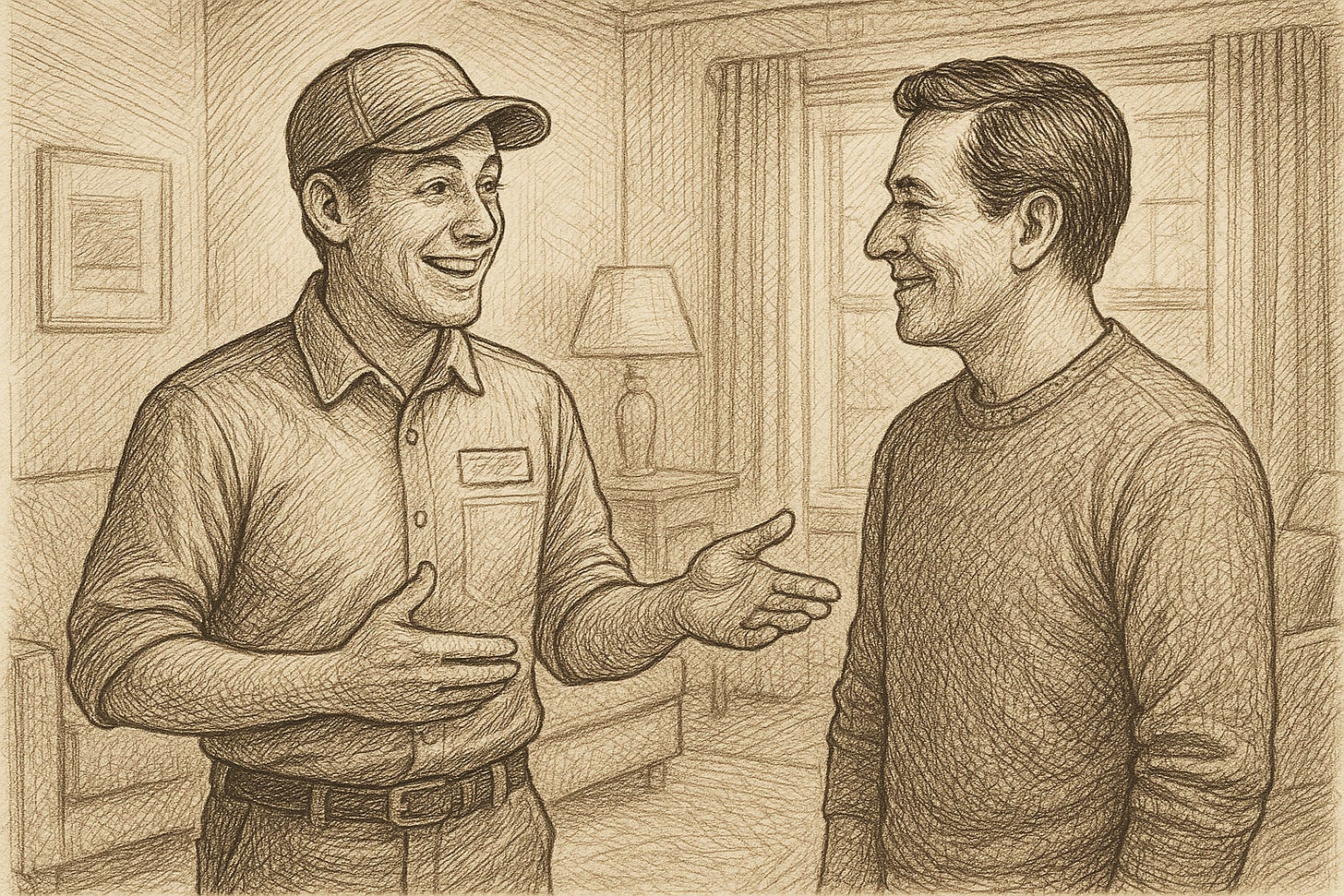Don’t “order” your customers around—there’s a better way!
Customer cooperation makes or breaks a job. The way you ask matters—ditch demands and use respect to build trust and get the help you need.
KickStart: Never tell a client they will “have to” do anything!
I had to learn this one the hard way: the words we use with our residential clients matter much more than we might think.
Sometimes I or one of my techs would say something that would seem totally normal to us, but the customer would hear (understand) it completely differently.
Take this example: almost every residential job requires a little cooperation from the homeowner. Maybe a door needs to be left unlocked, a pet secured, or some furniture moved. That’s normal.
But here’s the catch—how you ask makes all the difference in how they feel about you and your company.
💡Remember this: 80% of how a customer decides if it was a “good job” or a “bad job” comes down to how they FEEL about the person doing the work.
Not the final result. Not the price. So, for example, if you are an owner-operator, it’s “all about YOU”. For a larger company, it’s “all about the people involved in your “client’s buying experience”. This is why…
You (or your techs) should never tell a customer, “You’ll have to…” as in:
“You’ll have to move this chair.”
“You’ll have to leave that door open.”
It may sound innocent, but to a customer, it comes off like you are barking orders at them in their own home! Nobody likes that.
Instead, I suggest you flip it by phrasing the same basic request like this:
“I’d be really grateful if this chair could be moved.”
“Could you please leave the back door open for me?”
“I’d sure appreciate it if we could clear a little space here.”
See the difference? One way makes you and/or your team comes across like a domineering dictator. The other way? Your employee now sounds A) respectful, B) professional, and C) grateful. And guess what? People want to help us when they feel respected.
🙄 Steve’s TRUE Story time: One time I told a residential client, “You’ll have to move off the small items off your furniture.” Seemed like a reasonable request to me. (And it was.) But I’ve never forgotten Mrs. Smith’s reply…
“Steve, I’m the customer here. I only ‘have to’ do two things. First, pay taxes and second, keep breathing. So please don’t tell me I ‘have to’ move anything!”
A much-chastened Steve Toburen then replied, “My apologies, Mrs. Smith. Please let me try again.” Steve cleared his throat here…
“So Mrs. Smith, it would be really helpful if you folks could clear the small items off your furniture. You know best where to store them and it really will help your job go much smoother…”
A much-subdued Mrs. Smith now curtsied (does anyone even know what a curtsy is anymore?) and happily replied, “Of course, Steve, thank you for asking so politely. I’ll be delighted to help your team out!”
Of course, the goal is to keep requests to your client to a minimum. But when we do need something, asking the right way can flip an awkward and irritating “order” into a simple, positive interaction.
Because at the end of the day, it’s not just about fixing the problem in their home—it’s all about building trust while you’re there. (While making sure your client’s buying experience is an enjoyable and yes, even fun, time!)😎




